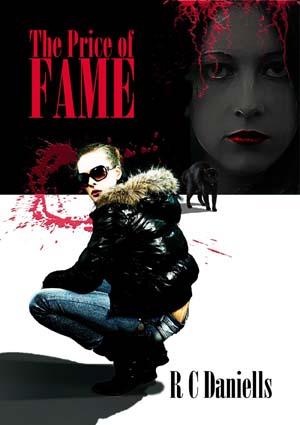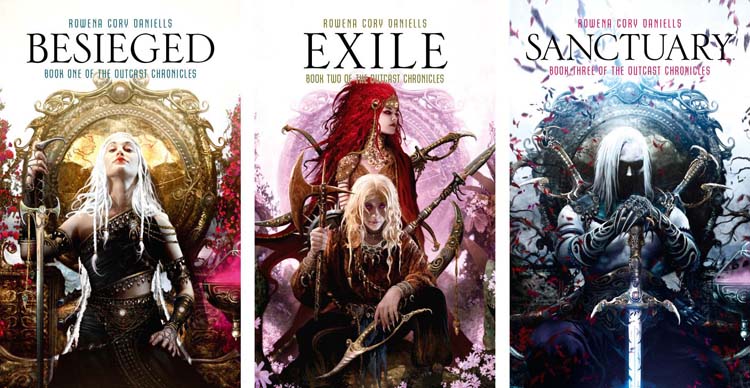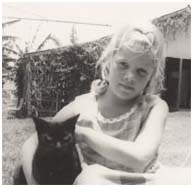I have been featuring fantastic female fantasy authors (see disclaimer) but this has morphed into interesting people in the speculative fiction world. Today I’ve invited the talented Lee Battersby to drop by.
Look out for the give-away at the end of the post.
Q: You’ve had over 70 short stories published, won the Aurealis Award, Australian Shadows Award (twice) and won an International Writers of the Future competition. Prime books published a collection of your short stories called Through Soft Air. Do you think the discipline of writing short fiction, helped hone your skill for novel writing?
 I think my short story writing experience helped when it came to building scenes and establishing coherent lines of narrative, but I found the shift from writing the short to long form a bit dislocating in many ways. I’d probably become too entrenched in the short form way of thinking, and had to leave a lot of shorthand habits behind. It’s still a bit of a wrench to write long establishing scenes, for example, and I still absolutely hate writing long descriptions of landscape or setting—short story thinking demands I get to the bloody point now, dammit! One thing I do enjoy when writing novels is the opportunity to write increasingly complex streams of dialogue: I like the narrative cut and thrust of spoken wordplay, and the way you can reveal and hide information simultaneously. In short stories you use dialogue to reveal the narrative a little more quickly. In novels, you can be a bit richer.
I think my short story writing experience helped when it came to building scenes and establishing coherent lines of narrative, but I found the shift from writing the short to long form a bit dislocating in many ways. I’d probably become too entrenched in the short form way of thinking, and had to leave a lot of shorthand habits behind. It’s still a bit of a wrench to write long establishing scenes, for example, and I still absolutely hate writing long descriptions of landscape or setting—short story thinking demands I get to the bloody point now, dammit! One thing I do enjoy when writing novels is the opportunity to write increasingly complex streams of dialogue: I like the narrative cut and thrust of spoken wordplay, and the way you can reveal and hide information simultaneously. In short stories you use dialogue to reveal the narrative a little more quickly. In novels, you can be a bit richer.
I’ve written in a myriad of forms over the years: stage plays, TV scripts, stand-up comedy, poetry… each form comes with its own rules and ways to break them, and I think the more forms you work in, the better you’re able to adapt to new disciplines. The important thing is not to become hide-bound by one form. I’ve produced the best short stories of my career over the last couple of years, without a great deal of market impact, so I’m making the transition to novels at the right time. I could have done so a couple of years ago and been a bit further along in my career plans, perhaps, but the Angry Robot Open Door success came along at exactly the necessary moment.
Q: You wrote a post for the ROR blog where you described the rollercoaster of submitting to the Angry Robot Open Submission Month. (994 manuscripts). And now your book The Corpse Rat King has been published. (Mega congratulations!) If you could go back and give yourself some advice when you submitted that manuscript, what would it be?
Not a single thing: the novel got through the process, it was picked up, I gots me an agent. I think it pretty much ticked all the boxes!
I was fortunate in that I submitted as a reasonably experienced author, so I knew not to hang about waiting for something to happen. I was already writing another novel—I had 52k of it under my belt before the contract was signed—and was working on a bunch of other stuff while I waited. So I was quite happy with the way the whole submission process panned out: I’d been a bit moribund beforehand but it revitalised me, and got me thinking of my career in different terms, which has been refreshing.
Q: The sequel to The Corpse Rat King, Marching Dead, is due out in 2013. Has it been a very different process writing a sequel, while editing the first book? And do you have an idea for a third book in the series?
 It has been different, in that I’m working to a deadline, as well as not being in the position where I can make up characters and locations from scratch. In a sense I’m much less free than I was in writing the first volume. Characters are established, distances are established, locations and levels of technology are all established. I can’t just make stuff up as I go along, so if I’ve cocked something up in creating the first book then I have to work with it and make it acceptable. That said, of course, I’m able to allow my characters to grow to a much greater extent, so it’s a lot of fun answering questions that may have arisen in volume one. And there are a few revelations along the way, too: the advantage of not working to a plan is that I can be surprised by something that pops up unbidden in the first draft and then, by the time the final draft is finished, make it look like I intended that to happen all along .
It has been different, in that I’m working to a deadline, as well as not being in the position where I can make up characters and locations from scratch. In a sense I’m much less free than I was in writing the first volume. Characters are established, distances are established, locations and levels of technology are all established. I can’t just make stuff up as I go along, so if I’ve cocked something up in creating the first book then I have to work with it and make it acceptable. That said, of course, I’m able to allow my characters to grow to a much greater extent, so it’s a lot of fun answering questions that may have arisen in volume one. And there are a few revelations along the way, too: the advantage of not working to a plan is that I can be surprised by something that pops up unbidden in the first draft and then, by the time the final draft is finished, make it look like I intended that to happen all along .
I do have a story arc worked out for the 3rd book, just in case the first two do well and Angry Robot decide to commission a third. I know the beginning, and the end point, and the Great Big Decision ™ Marius will have to make in order to reach it. Any more than that will generally work itself out in the writing. But it would be fair to say that any shit my heroes managed to pour all over themselves in the first two books would be nothing when compared to volume three!
Q: You have tutored at Clarion South and you have an article on the Australian Horror Writers Association web site Industry Advice. The industry is changing so fast. Once it was the kiss of death to self-publish, now many authors are self-publishing their back lists. Do you find yourself scrambling to keep up?
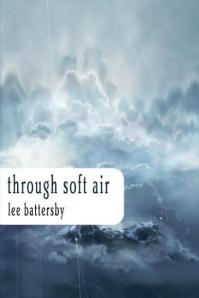 I’m not a big fan of self-publishing new pieces: to my old-fashioned way of thinking it still carries the whiff of work not good enough to attract a more traditional publisher. However, I can understand why an author who has the time and energy to do so would want to release older pieces directly to the public without any intermediary: the work has already undergone a process of third-party quality control, the dialogue between author and reader can be made more immediate, and the cash flows more directly to the writer.
I’m not a big fan of self-publishing new pieces: to my old-fashioned way of thinking it still carries the whiff of work not good enough to attract a more traditional publisher. However, I can understand why an author who has the time and energy to do so would want to release older pieces directly to the public without any intermediary: the work has already undergone a process of third-party quality control, the dialogue between author and reader can be made more immediate, and the cash flows more directly to the writer.
I readily acknowledge that I’m a little bit behind the times in my thinking: I still adhere to a traditional publishing model for my work, and I’m comfortable with that. I see a number of authors putting their own work out via electronic self-publishing, and it seems to me a very labour intensive way to go about your business. But when it comes to the marketplace, authors have to understand that they are small business owners, and as a small business owner, you have to decide the best way to market your product and how much time you’re willing to spend in developing the means of production. My instinct has always been that I’m too time-poor to be an effective electronic self-pubber, so I’ve steered away from it: I’m not passionate about that process, I’m not an adherent of the delivery system (I don’t own an e-reader, I don’t plan to own one, etc.), and for me, what time I do have is better utilised in other ways. That’s no comment on those who do choose to go down that track, just a fairly honest assessment of where my own strengths and weaknesses lie.
Ultimately, the best delivery medium, and the way you promote and market yourself as an author, is decided by the overall goals you have for your career. Self-publishing doesn’t attract me because it doesn’t fit in with my strengths and it doesn’t align with the direction I want my career to take. I keep in touch with the discussions, because I think every writer should be at least passingly familiar with the trends and evolutions of their business environment. But my limited experience shows me two levels of work being pushed—electronic reprints of paper books, which any sensible author should be pursuing as a negotiable clause in their contracts anyway, and original e-only works: the literary equivalent of a straight-to-video release, with the accompanying wild variations in quality. And I’m not sure I’ve discovered an efficient-enough means of separating the wheat from the chaff to make jumping into that second category a time-effective way to spend my writing career.
There may come a time when I look at self-publishing my story backlist, but truth be told I’d be just as comfortable with a small press publisher swooping in and offering to do all the hard business stuff for me in return for a cut of the proceeds, or paying me a flat fee as per the traditional business model. That might mean a cut in my potential in-hand profit, but I make a good living so money’s not that much of an issue, and at the end of the day I like real, hold-‘em-in-your-hand dead tree books, so it’s a compromise I’m happy to make.
Q: Your wife is talented writer, Lyn Battersby. With two creative people, who happen to be creative in the same medium in the same house, do you find this is a blessing or a curse? Do you read each other’s work and give feedback? Or do you find you can’t bear to do this? Have you considered collaborating? (eg. Written by L & L Battersby).

Lyn and Lee (courtesy Cat Sparks)
Lyn and I have collaborated on one story: a post-alien invasion tale called ‘C’ that, for a number of reasons, never really satisfied either of us so never saw the light of day. We’re both gearing up to work more as full-time novelists now, so the chances of collaboration on a fiction project aren’t high. Lyn writes much more elegant and subtle prose than I do, and her subject matter tends to be far more intimate, so I think there’s probably a clash in approach that doesn’t benefit our respective strengths. Once she gets the recognition her work deserves she’s going to become far too rich and famous to suffer having me riding her coat-tails, anyway…
But it’s definitely more a blessing than a curse to be married to someone with the same career goals and aspirations, simply because of the level of understanding. One of us can call ‘writing night’ at any time and there’s no argument, and when we talk it’s in the same language. We did read each other’s work a lot more when we were less experienced, mainly, I think, as a form of reinforcement that what we were doing made sense to someone else. Now we’re fairly confident in our own abilities we tend to read each other for pleasure, and Lyn doesn’t read my long work—she wants to wait for it to come out in proper novel format. But we’re always on hand to offer instant advice or an opinion, and as we generally can’t stop talking about current projects we usually have a pretty good idea what each other is working on, where we’re at with it, where it’s going, how rich it’s going to make us… just normal, everyday, married person conversations .
Q: I was prompted to start this series of interviews because there seems to be a perception in the US and the UK that fantasy is a bit of a boy’s club. Do you think there’s a difference in the way males and females write fantasy?
It’s a gross generalization to split a literary genre along gender lines, but I think you could argue that there are differences in the way males and females perceive fantasy, inasmuch as we seem to fantasize for different reasons. We’re a fairly small outpost in Australia, and I think it’s probably a bit easier to do a head-count than in the larger markets, so we’ve got a pretty good idea of our gender mix, which is increasingly healthy if not yet equitable. It helps to have good, strong publishers who understand the need for variation in theme and approach: in particular, Twelfth Planet Press and Fablecroft Publishing are two houses that are helmed by smart, high-quality editor/publishers who strive to promote a more literate, intelligent type of fantasy, which is the sort of environment where subtler forms of writing can thrive.
I think the male/female style argument is a somewhat simplistic one, and I’d like to think that as an industry we might have become a little more sophisticated than that, at least here in Australia, because I can see the Australian SF small press working hard to provide opportunities based on idea and theme rather than gender alignment, but as I said, it’s easier to look at the demographic in its entirety here, and also easy to view things from the perspective of a white middle-class male with few barriers to his career. My wife, who writes beautifully subtle and elegant works that often don’t pass through the quick-read filter, might gently intimate that I’m talking shit.
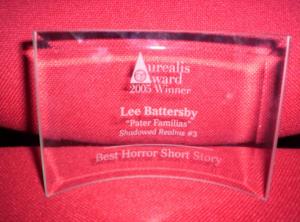 Q: Following on from that, does the gender of the writer change your expectations when you pick up their book?
Q: Following on from that, does the gender of the writer change your expectations when you pick up their book?
Not a bit. I’m utterly disinterested in the gender of the author when I pick up a book. Gender is just a description of where your dangly bits dangle from. It’s not an expression of sexual orientation, political affiliation, socio-economic outlook, or any of the umpty million psychological, societal and environmental factors that an author brings to their work. It may inform some of those factors, but what’s more interesting, from a creative point of view, is your overall worldview: the set of experiences that you, as a writer, translate into fiction. Gender is by no means the deciding, or even major, element in the translation of that mindset.
As a reader, and as simplistic as it sounds, all I want is to read a good book. That’s it. I don’t care if the author is an ancient Sumerian rabbit god with a lisp, as long as the story they tell moves me, involves me, and just maybe, leaves me looking at the world through a different lens. I’m old enough to have grown up whilst it was still relatively easy to find Leigh Brackett, CL Moore, Julian May and the likes on a shelf. And whilst it was—and remains—a blight on the industry that a significant percentage of writers feel they have to conceal their gender in order to find an audience, from the perspective of my young reader-self it meant that, as I grew up, I paid attention to the name on the cover rather than the identity of the author behind them. I’ve no doubt that gender plays a part in the publishing business, which would lead me down a very different rant indeed, but once a book actually reaches the bookshelf, the gender of the author becomes a non-issue for me.
Ultimately, if the gender of the author is the sole reason you pick up a book—or worse, the reason you don’t—then you may be missing the fucking point a wee bit. Is my experience of, say, a George Eliot novel lessened because I might learn that Oor George was a woman? Could I be that simplistic a creature? And if I am, what the fuck do I do if someone hands me a Caitlin Kiernan book, or a Poppy Brite?
A book is a doorway to a shared experience, and if you’re lucky, an experience that you not only haven’t had before but could not conceive of having. If reading that book leads you to seek out information about the author, and if learning about their lives enriches your reading experience, then fantastic. But the book itself is the gift. The story within is the sole point of contact through which we, as readers, have the right to critique and analyse the author’s motive. Anything else, unless directly communicated by the author, is conjecture. To take the immortal Trillian entirely out of context: anything you still can’t cope with is, therefore, your own problem.
As an author, though, as an author: that’s a different bucket of cows. The truth is, at least within our beloved little genre, that SF remains the province of a largely masculine way of thinking, and what’s worse; it’s a masculine way of thinking that even Tony Abbott might occasionally find old-fashioned and bigoted. It is undeniably a struggle to pass a truly feminine, or transgendered, worldview through the gatekeepers of most magazines and publishers. From an editing point of view—particularly in the magazine field—we’re set up for the quick fix. It’s easier to filter for a muscular, action-driven narrative that responds well to a first reading than it is to reward a subtle, emotionally-shaded, character-driven narrative that needs two or three readings to fully unfold. To split such stories directly down that divide as typically male or female is, of course, a gross simplification in itself, but as Westerners we create a societal culture that demands women define themselves as emotional beings, and then create a genre infrastructure that makes it difficult to sell emotionally subtle stories. Is it any wonder that female authors who have the greatest success writing Spec-style novels have a tendency to either do it outside the genre or loudly disassociate themselves from it?
Of course, all comments can be filtered through my happy life as a fat, middle-class white man, and disregarded as necessary.
Q: And here’s the fun question. If you could book a trip on a time machine, where and when would you go, and why?
I’m having a hard time not hearing Kryten right now: “If I could go anywhere, absolutely anywhere at all in time, I think I’d probably choose to go back to a week last Tuesday… I did all the laundry, and then we watched TV. Wow, we won’t see the like of THOSE sorts of days again.” 🙂
Dinosaurs. It’s got to be dinosaurs. Because, well… dinosaurs!
Giveaway Question: “If you could go anywhere after you die, where would it be?”
Catch up with Lee on Facebook
Catch up with Lee on Goodreads
Catch up with Lee on Google+
Follow Lee on Twitter @leebattersby
Catch up with Lee on Linkedin
Lee’s Blog


